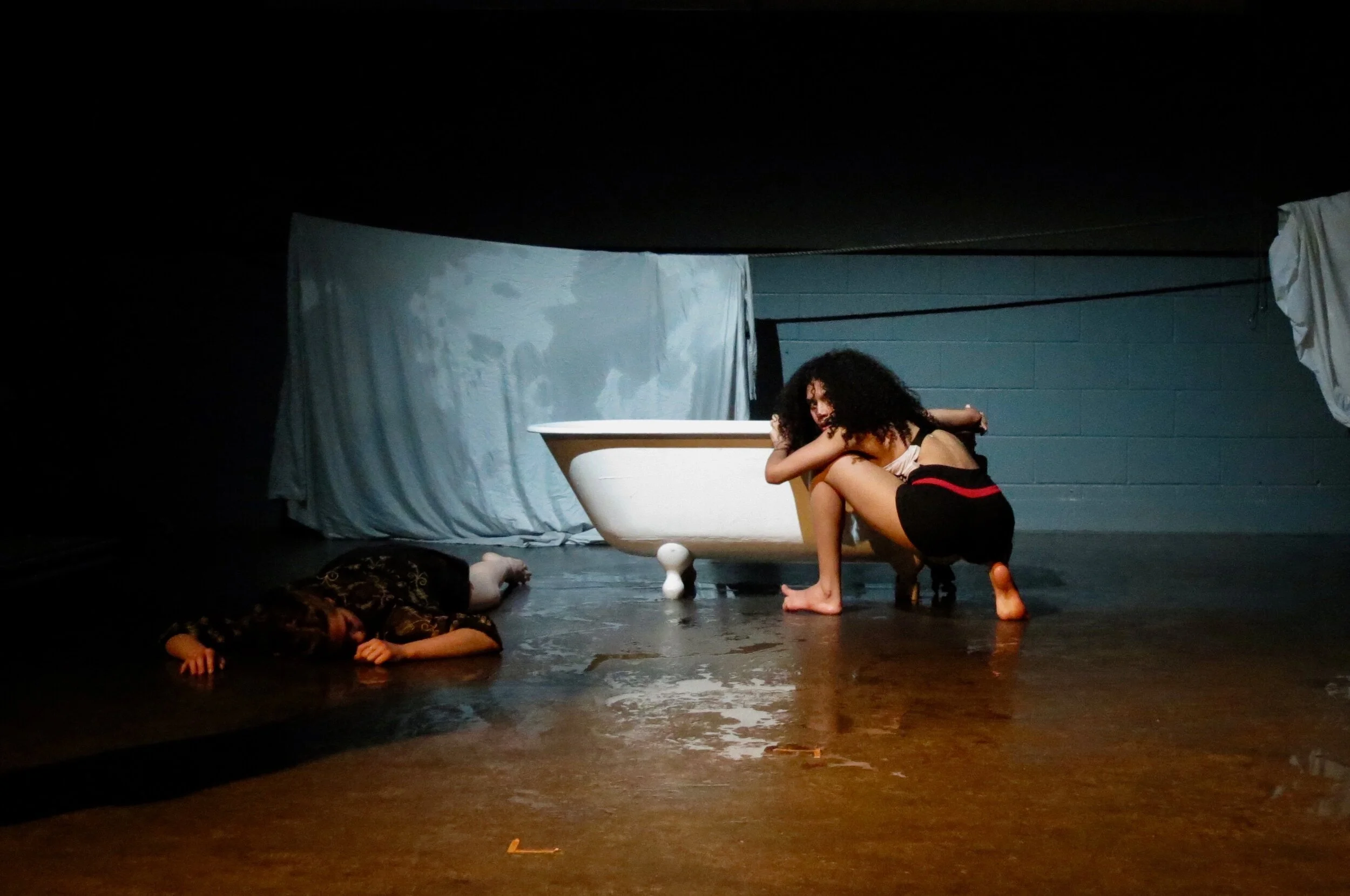MEtamorphoses
by Mary Zimmerman, based on Ovid’s Epic Poem
York University Studio, 3rd Year Acting Class
January 31 - Feb 3, 2019
CAST + CREATIVE TEAM
Performed by Katia St Jean, Michael McNeil, Justine Harper, Emily Herridge, Quinn Finnigan, Reid Millar, Cassandra Henry, Giulia Pittiglio, Davinder Malhi, Madi Baines, Kat Khan, Sanskruti Mathe, Christa-Marie Waugh, Lilli Furfaro, Anoja Vicky.
Assistant Directors / Design / Stage Management Amy Kingston, Célèste LaCroix, Edmond Clark. Photography Célèste LaCroix.
Director’s Note
Recently, I was fascinated to learn of studies showing that every generation believes the difference between them and the next generation is greater than between them and their parents’ generation. This seems to indicate how much we are rattled by the unknown and the prospect of change. I, too, feel like I live in a time of vast and fast changes that I am trying to keep up with. Extreme political factions have strengthened in less than a decade; nationalism has manifested worldwide in ways my parents thought had been overcome for good; technology develops at a record speed, and the way the media shape our daily lives was unimaginable to most of us when I was the age of my students today. Social culture, too, is morphing rapidly—a new awareness of difference, and a highlighted need for tolerance, care and institutional transparency, demand permanent changes in our actions and thinking.
In Ovid’s epic poem Metamorphoses humans are turned into animals and plants as a result of their faults and follies—but also through their acts of faith, love or kindness. Exploring this seminal work in Mary Zimmerman’s late 20th century adaptation offered an invitation to the young performers to consider (through a twice-refracted, historical lens) the many changes they are currently undergoing themselves—as inhabitants of the world in 2019, but also as young people at an age when personal change is inevitable. They are at the cusp of adulthood, about to enter their professional lives, and are growing into fully responsible members of society. Yet, they have many more metamorphoses ahead of them, as they are just at the beginning of a long process of coming into themselves—as artists, as citizens, as fellow humans. This project encourages us to view such often painful and scary transformations, that come with losses and fears, as chances to gain (and regain) agency; as a chance to leave the husk behind that has become too small for us, and to grow into something new and beautiful. What resonated equally strongly with these young artists was the play’s claim that none of our actions remain without consequences. Empathy, care for one another, and the responsibility for our planet proved to be crucial principles in the way they interact with their world. This makes me hopeful; perhaps our world is in good hands with this generation. Birgit Schreyer Duarte
























